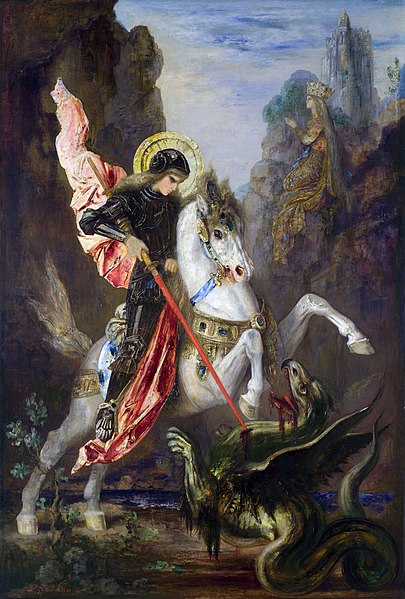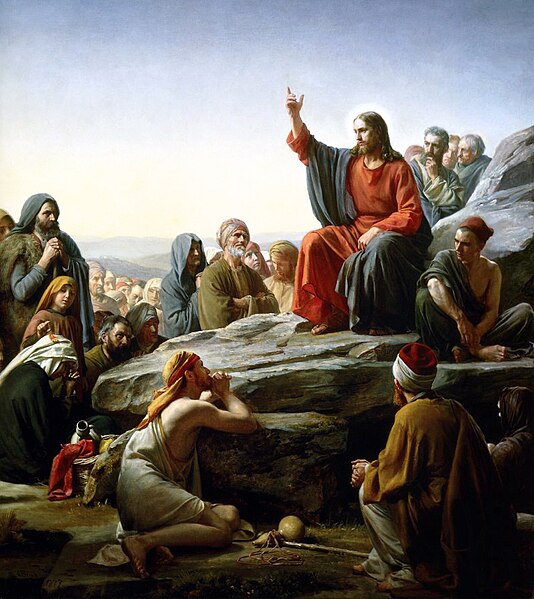Christian mythology is the body of myths associated with Christianity. The term encompasses a broad variety of legends and narratives, especially those considered sacred narratives. Mythological themes and elements occur throughout Christian literature, including recurring myths such as ascending a mountain, the axis mundi, myths of combat, descent into the Underworld, accounts of a dying-and-rising god, a flood myth, stories about the founding of a tribe or city, and myths about great heroes of the past, paradises, and self-sacrifice.
Saint George and the Dragon by Gustave Moreau, 1889–90
Saint Brendan's voyage, from a German manuscript
Dante and Beatrice gaze upon the highest Heaven (The Empyrean), illustration for the Divine Comedy by Gustave Doré (1832–1883), Paradiso Canto 31.
Jesus' Sermon on the Mount depicted by Carl Bloch
Paradise Lost is an epic poem in blank verse by the 17th-century English poet John Milton (1608–1674). The first version, published in 1667, consists of ten books with over ten thousand lines of verse. A second edition followed in 1674, arranged into twelve books with minor revisions throughout. It is considered to be Milton's masterpiece, and it helped solidify his reputation as one of the greatest English poets of all time. The poem concerns the biblical story of the fall of man: the temptation of Adam and Eve by the fallen angel Satan and their expulsion from the Garden of Eden.
Title page of the first edition (1667)
Image extracted from page 362 of The Poetical Works of John Milton. Containing Paradise Lost. Paradise Regained. Samson Agonistes, and his Poems on several occasions, by Milton, John, Michael Burghers (1695).
Milton Dictating to His Daughter, Henry Fuseli (1794)
Gustave Doré, The Heavenly Hosts, c. 1866, illustration to Paradise Lost.








